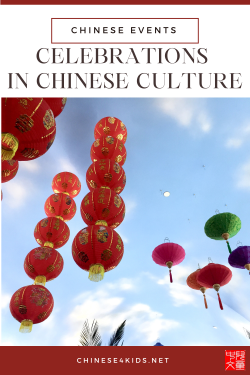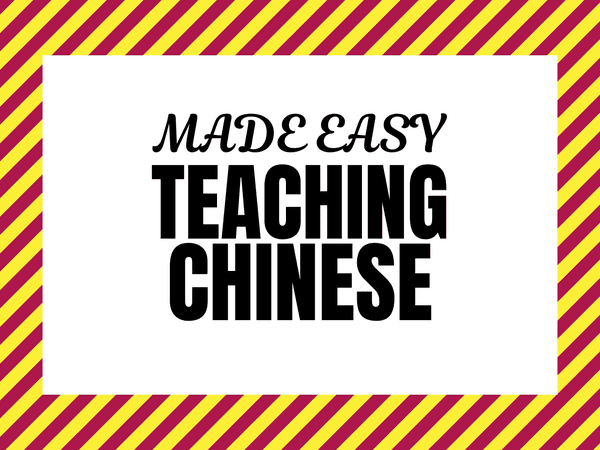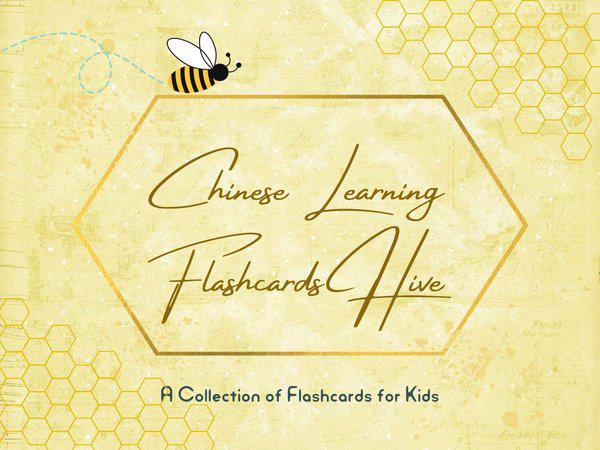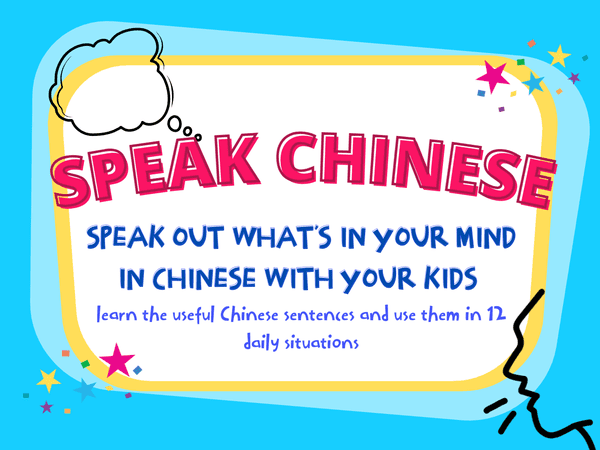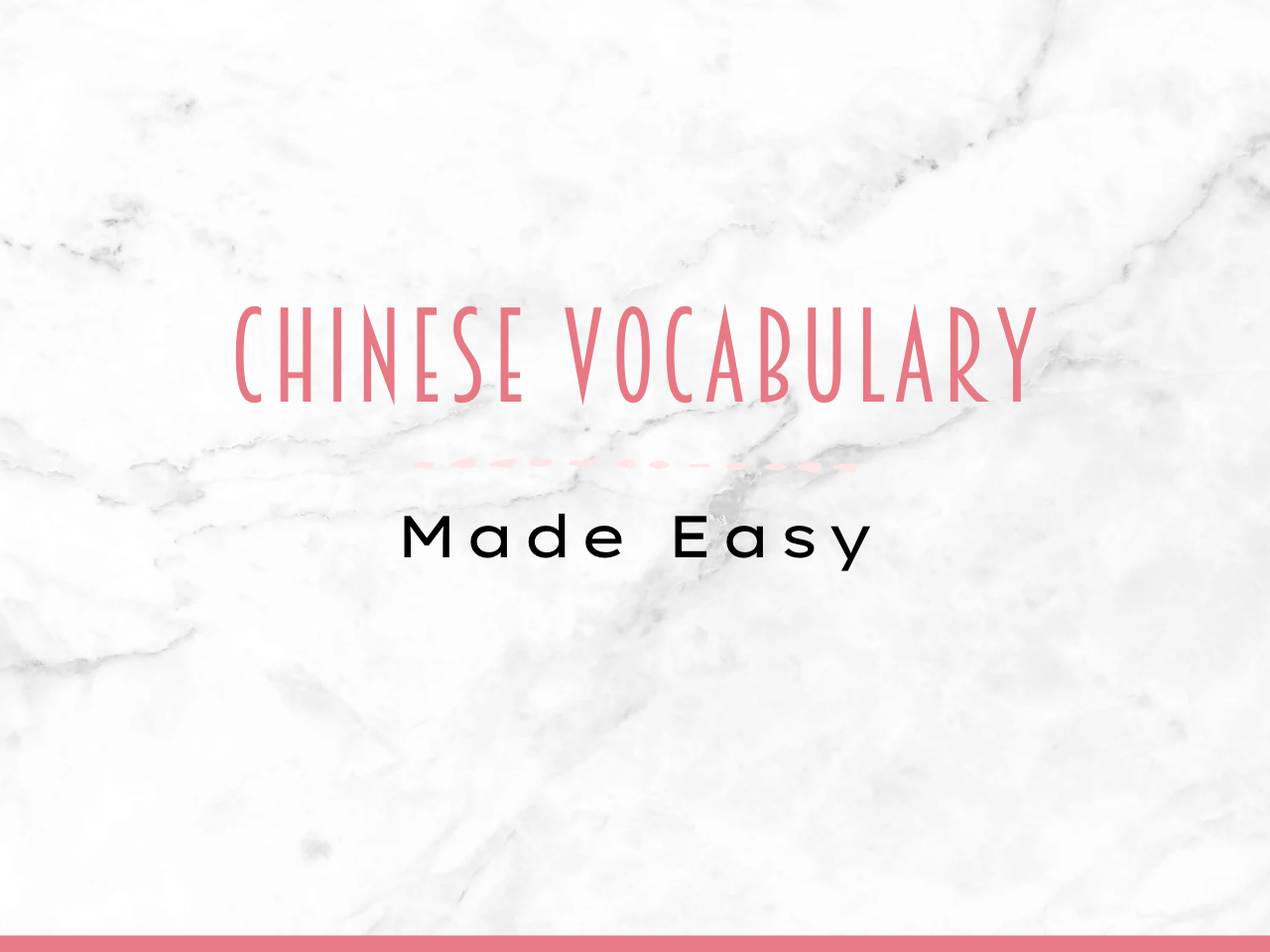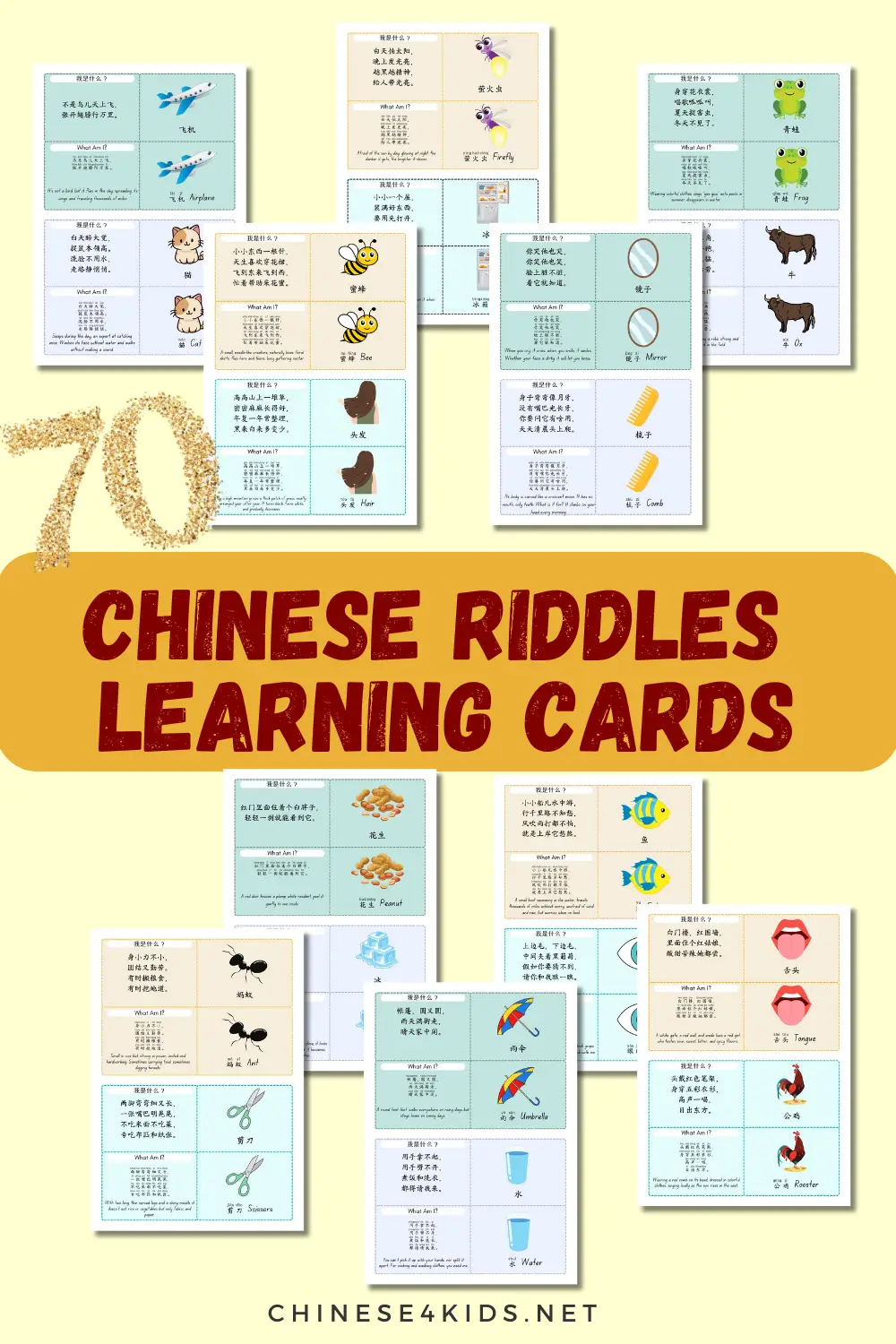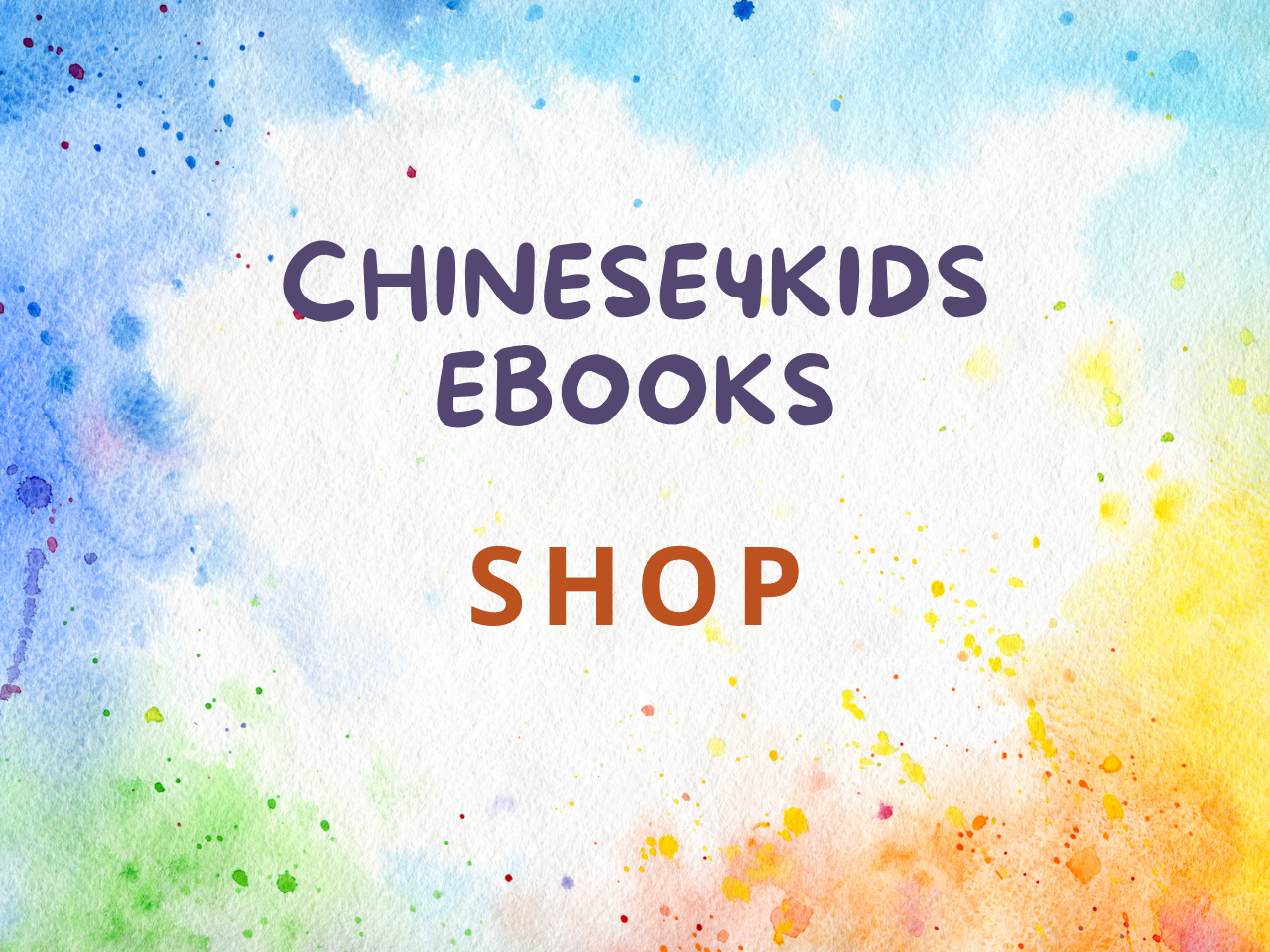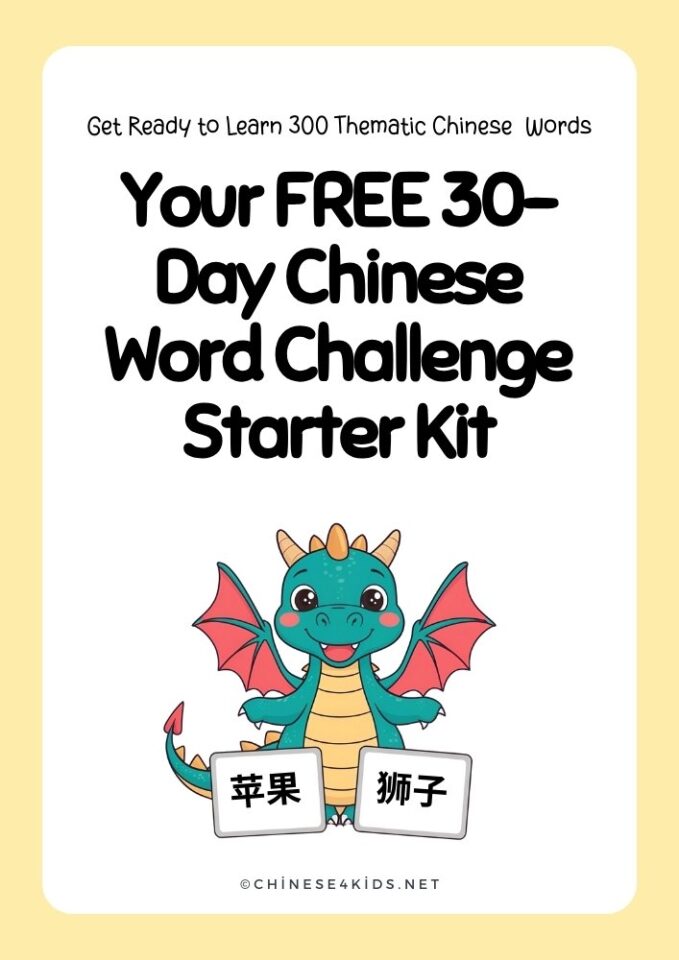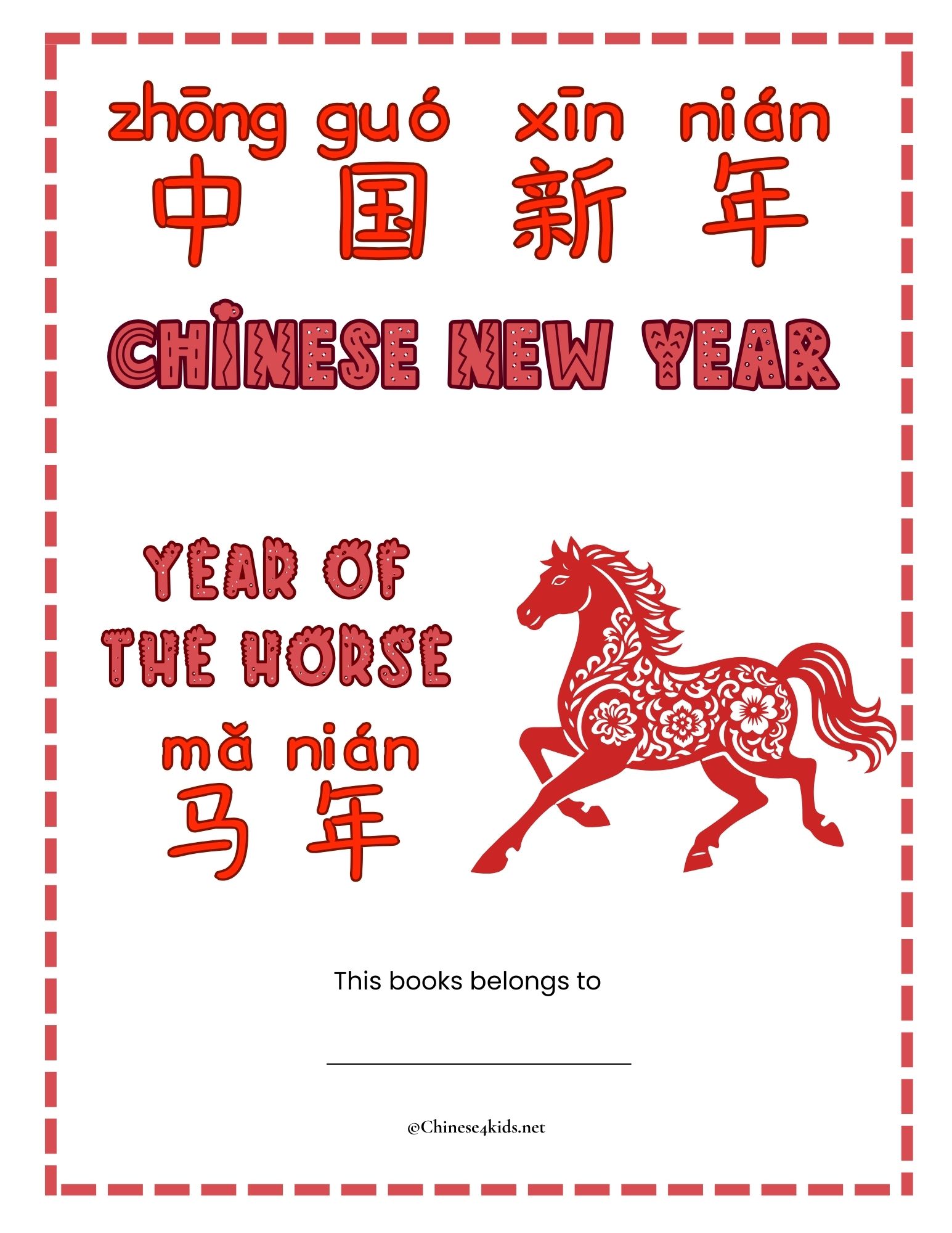
Home » Chinese learning activities for kids » Celebrations, Festivals, and Special Occasions in Chinese Culture
Celebrations, Festivals, and Special Occasions in Chinese Culture
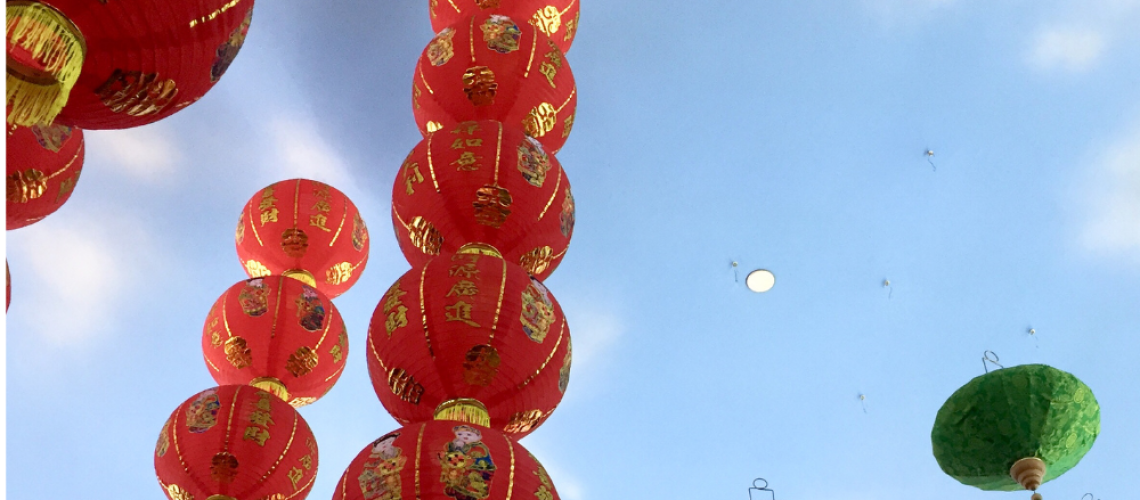
Celebrations in Chinese Culture are deeply rooted in traditions that bring people together to celebrate life, family, and history. From large-scale national holidays to personal milestones, each occasion is filled with meaningful customs, vibrant activities, and heartfelt expressions.
The four top traditional Chinese festivals are Spring Festival, Tomb-Sweeping Day, Dragon Boat Festival, and Mid-Autumn Festival.In this article, we explore the most significant celebrations and festivals celebrated by Chinese people, highlighting the key vocabulary, expressions, and traditions that make these events special. Other celebrations in Chinese Culture include National Day, birthdays, and teacher’s day.
Chinese New Year 春节 (Chūn Jié)
Chinese New Year, also known as the Spring Festival, is the grandest celebration in Chinese culture. It’s a time for family reunions, feasting, and welcoming a prosperous year ahead.
When:
First day of the lunar calendar (late January to mid-February)
Key Vocabulary and expressions
春节快乐!
Chūn jié kuài lè!
– Happy Spring Festival!恭喜发财!
Gōng xǐ fā cái!
– Wishing you wealth and prosperity!红包
Hóng bāo
– Red envelopes containing money.
Customs
Reunion Dinner 年夜饭 (Nián yè fàn):
A lavish meal with symbolic dishes like fish (abundance) and dumplings (wealth).
Red Decorations:
Homes are adorned with red couplets (春联, chūn lián) and lanterns to invite good fortune.
Fireworks and Lion Dances:
Explosive displays and traditional dances are performed to drive away evil spirits.
Lantern Festival 元宵节 (Yuán Xiāo Jié)
The Lantern Festival marks the conclusion of Chinese New Year celebrations with a dazzling display of lights and unity.
When:
15th day of the lunar calendar (February or March)
Key Vocabulary and expressions
元宵节快乐!
Yuán xiāo jié kuài lè!
– Happy Lantern Festival!赏花灯
Shǎng huā dēng)
– Admire the lanterns.吃元宵
Chī yuán xiāo
– Eat sweet rice balls.
What People Do
Lantern Displays:
Streets are illuminated with colorful lanterns shaped like animals or mythical creatures.
Solving Riddles:
People solve riddles attached to lanterns for fun and prizes.
Eating Sweet Rice Balls:
These glutinous treats symbolize family unity.
Tomb-Sweeping Day 清明节 (Qīng Míng Jié)
This solemn festival is a time to honor ancestors and pay respects to those who have passed away.
When:
April 4th or 5th
Key Vocabulary and expressions
清明安好
Qīngmíng ān hǎo
– Wishing you all best for Qingming Festival.扫墓
Sǎo mù
– Tomb-sweeping.
Customs
Tomb-Sweeping:
Families clean gravesites and make offerings of food, tea, and incense.
Kite Flying:
A symbolic gesture to ward off bad luck and celebrate spring.
Dragon Boat Festival 端午节 (Duān Wǔ Jié)
The Dragon Boat Festival commemorates the life and legacy of Qu Yuan, a patriotic poet.
When:
5th day of the 5th lunar month (which is in late May or June)
Key Vocabulary and expressions
端午节快乐!
Duān wǔ jié kuài lè!)
– Happy Dragon Boat Festival!粽子
Zòng zi
– Rice dumplings wrapped in bamboo leaves.龙舟竞渡
Lóng zhōu jìng dù
– Dragon boat races.
Customs
Eating Zongzi:
These sticky rice dumplings come with various fillings like red bean or pork.
Dragon Boat Races:
Teams paddle in brightly decorated boats to the rhythm of beating drums.
Hanging Mugwort and Calamus:
These plants are believed to ward off evil spirits and bring health.
Mid-Autumn Festival 中秋节 (Zhōng Qiū Jié)
Mid-Autumn Festival is usually in September or October. It is a festival that celebrates the harvest and family unity, symbolized by the full moon.
When:
15th day of the 8th lunar month (September or October)
Key Vocabulary and expressions
中秋节快乐!
Zhōng qiū jié kuài lè!
– Happy Mid-Autumn Festival!月饼
Yuè bǐng
– Mooncakes.赏月
Shǎng yuè
– Moon gazing.
Customs
Sharing Mooncakes:
These pastries come with sweet or savory fillings and represent togetherness.
Moon Viewing:
Families gather to admire the full moon and share stories.
Lantern Displays:
Lantern parades and dragon dances are popular in some regions.
Double Seventh Festival 七夕节 (Qī Xī Jié)
Known as Chinese Valentine’s Day, this festival celebrates the love story of the Cowherd and Weaver Girl.
When:
7th day of the 7th lunar month (August)
Key Vocabulary and expressions
七夕节快乐!
Qī xī jié kuài lè!
– Happy Qixi Festival!我爱你!
Wǒ ài nǐ!
– I love you!
Customs
Gift Giving:
Couples exchange flowers, chocolates, or romantic tokens.
Weaving Skills:
Women traditionally show off their weaving and needlework as a tribute to the Weaver Girl.
Star Gazing:
People look for the stars Vega and Altair, symbolizing the Cowherd and Weaver Girl.
National Day 国庆节 (Guó Qìng Jié)
This holiday commemorates the founding of the People’s Republic of China in 1949.
When:
October 1st
Key Vocabulary and expressions
国庆节快乐!
Guó qìng jié kuài lè!
– Happy National Day!升旗仪式
Shēng qí yí shì
– Flag-raising ceremony.Customs
Parades and Fireworks:
Major cities like Beijing host grand celebrations, including parades and light shows.
Travel and Leisure:
Many families use this week-long holiday to travel or relax.
Wedding Celebrations 婚礼 (Hūn Lǐ)
Weddings in Chinese culture are filled with symbolism and rituals to ensure prosperity and happiness for the couple.
When:
Throughout the year
Key Vocabulary and expressions
新婚快乐!
Xīn hūn kuài lè!
– Congratulations on your marriage!百年好合
Bǎi nián hǎo hé
– May you have a harmonious union for a hundred years.
Customs
Tea Ceremony 敬茶 (Jìng chá):
The couple serves tea to their elders as a gesture of respect and gratitude.
Red Attire:
Brides wear red for good luck, while the wedding venue is adorned with red decorations.
Birthdays 生日 (Shēng Rì)
Birthdays, as a personal milestone, in Chinese culture emphasize longevity and gratitude for life.
Key Vocabulary and expressions
生日快乐!
Shēng rì kuài lè!
– Happy Birthday!长命百岁
Cháng mìng bǎi suì
– May you live a hundred years!
Customs
Longevity Noodles 寿面 (Shòu miàn):
Eating these symbolizes a wish for long life.
Teacher’s Day 教师节 (Jiào Shī Jié)
This day celebrates the contributions and hard work of educators.
When:
September 10th
Key Vocabulary and expressions
教师节快乐!
Jiào shī jié kuài lè!
– Happy Teacher’s Day!辛苦了!
Xīn kǔ le!
– Thank you for your hard work!
Customs
Gifts and Cards:
Students often present flowers or heartfelt notes to their teachers.
School Ceremonies:
Schools organize performances or assemblies to honor teachers.
From grand festivals like Chinese New Year to heartfelt personal milestones like birthdays, Chinese celebrations are rich in meaning and tradition. By learning the vocabulary and customs associated with these occasions, you can connect more deeply with Chinese culture and people.
Start exploring these celebrations and share the joy with your family and friends!
If you like this post, share it!
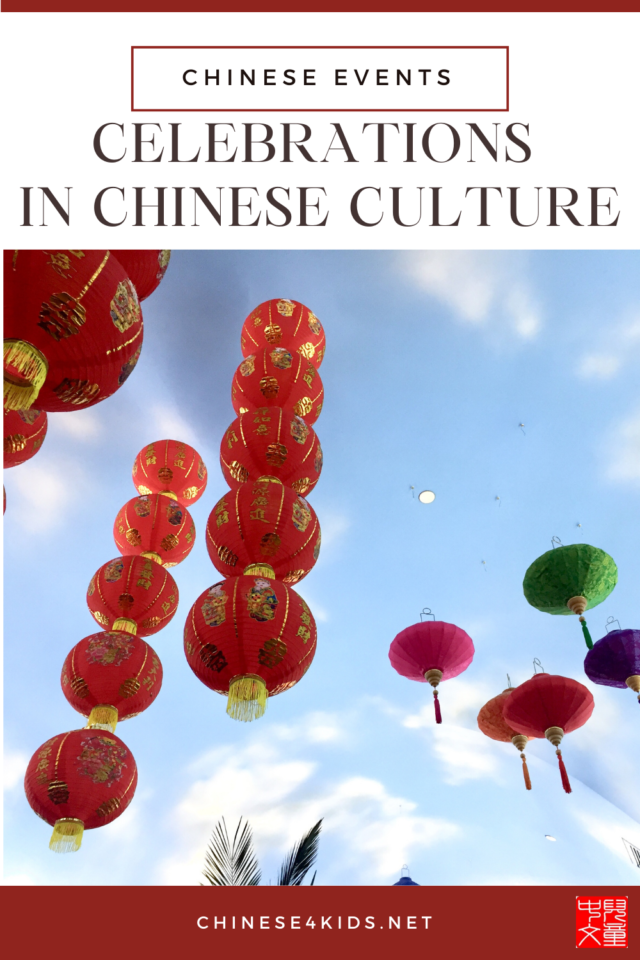
You May Also Be Interested:
- Chinese4kids Membership – a portal for busy Chinese teachers and parents
- Chinese learning flashcards Hive – a flashcards library that with regular additions of new quality Chinese learning flashcards
- Chinese learning worksheets collection – Also a part of Chinese4kids membership, this collection is for teachers and parents who want to have access to engaging worksheets and activity sheets created for kids learning Mandarin Chinese as an additional language
- Speak Chinese with Kids Course
- Chinese Vocabulary Made Easy Course
Recent Posts
Join Our Membership
Enroll to A Course
Buy An eBOOK
Our Posts
